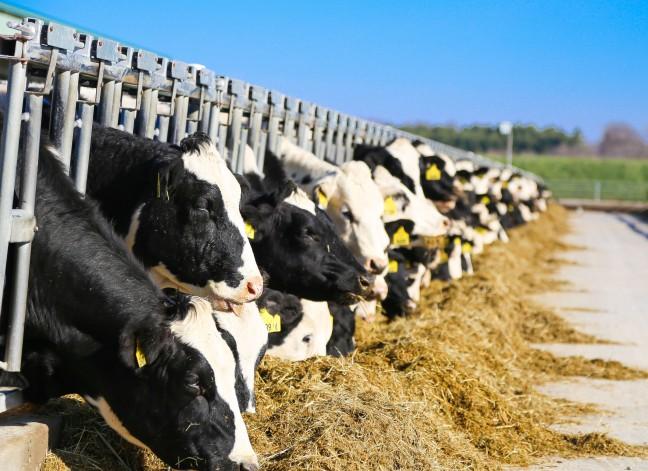With Wisconsin’s dairy farming industry waning, the Wisconsin legislature is trying to find innovative ways to reinvigorate it by teaming up with the University of Wisconsin System.
State Sen. Howard Marklein, R-Spring Green, and Rep. Travis Tranel, R-Cuba City, introduced Senate Bill 186 at the Wisconsin State Capitol Wednesday morning. If passed, this bill would establish a Dairy Innovation Hub at UW-Madison, UW-Platteville and UW-River Falls, according to a press release.
According to the press release, $7.9 million will be allocated to the project, with Madison receiving 52 percent of the funds. This investment represents less than 0.02 percent of Wisconsin’s dairy economy, which contributes $43.4 billion to the state economy annually.
ASM proposes taking action against gelatin in Babcock ice cream
Each campus would be allowed to use the funds in their own way, as long as it accomplishes the goals of the project, the press release said.
The research that would be completed at these centers is aimed at improving land and water resources, human health and nutrition, animal health and welfare, and farm businesses and communities, according to the press release.
“The dairy industry and agriculture is in crisis,” Marklein said in the press release. “Declining milk prices and financial hardship are a constant worry for our farmers. I believe the Dairy Innovation Hub bill has real potential to answer this.”
The number of dairy cow herds in Wisconsin has been declining for the past 15 years. From January to April this year, Wisconsin’s dairy cow population decreased by nearly 3,000 more cows than it did in the same time period last year.
Wisconsin was the leading state for farmers declaring bankruptcy last year, totaling 49 filings. Wisconsin’s rate is the highest it has been in over a decade and the filings were more than double the level experienced in 2009.
Uber’s newest program could possibly bring greater access to health care in Madison
In the press release, Marklein said this project does not mean to increase dairy production, but rather dedicate effort to new priorities.
The centers will also study water quality issues, develop new and unique dairy products, open new markets for dairy products, deploy research discoveries to the dairy industry and find non-food uses for dairy, such as biodegradable plastics. The casein protein in milk can be derived to make this and other products.
Funds can be used to hire faculty and researchers and provide support for research facilities and infrastructure, according to the press release.
Heather White, associate professor in the department of dairy science at UW-Madison, made a testimony in support of the centers to state senators.
“There is a demand for more teaching of students, producers and professionals, and there are countless … research questions which cannot be answered due to limited resources,” White said.
Natural Light, among other corporations, help with college debt relief
UW-Madison is planning on receiving 16 new staff members to achieve their research goals, according to a UW report.
Marklein’s chief of staff Katy Prange said the new hubs are not meant to provide an overnight fix.
“This will be over the long term, and will help Wisconsin’s dairy industry forge new paths,” Prange said.
The idea for the hubs came from the Dairy Task Force 2.0, which was created in June 2018 to formulate goals and actions to improve Wisconsin’s dairy industry. The task force posited 51 recommendations in total, with investing in a Dairy Innovation Hub as its highest priority.
Kathryn VandenBosch, dean and director of the College of Agricultural and Life Sciences at UW-Madison, said at a public hearing Wednesday morning that the centers can make a positive change in the partnership between UW-Madison and farmers.
“This reinvestment will allow the schools within the UW system to train current and future industry leaders, to continue to develop new solutions, and to transfer new knowledge to farms, processing plants, fields and beyond,” Vandenbosch said.














